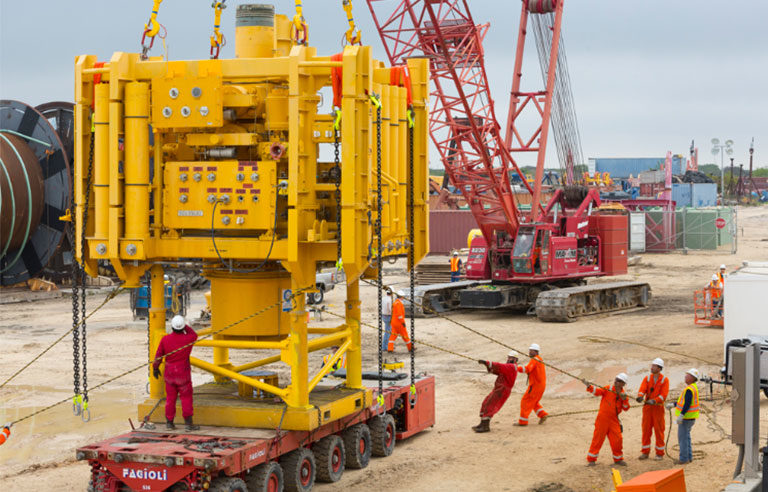Early kick detection may prevent loss of oil and gas well control, forum speaker says

Photo: Bureau of Safety and Environmental Enforcement
Houston – A risk model recently presented at the Ocean Energy Safety Institute’s Public Technology Assessment Program Forum indicates that earlier kick detection during offshore oil and gas operations could be vital to preventing incidents involving loss of well control.
The forum featured six worker safety and environmental protection projects funded by the Bureau of Safety and Environmental Enforcement, which established OESI in 2013. Norwegian researcher Per Holand, who served as lead forum speaker, described worldwide incidents of loss of well control from 2000 to 2014.
“Most losses of well control that occur during drilling, workover, and completion occur because well kicks are observed too late,” Holand said in a Feb. 17 press release. “To achieve risk reduction, the industry should not only try to reduce risk occurrences, but also improve kick detection.”
The group found that although most losses of well control are restored in a timely manner, about 9 percent of incidents can trigger fires or explosions. Holand said the Gulf of Mexico sees a greater frequency of well kicks and control loss incidents than other bodies of water given its reservoir pressure, greater water depths, narrower drilling margins, thick salt canopies, shallow geo-hazards and different drilling procedures.
“It’s important that the industry anticipates both unexpected pressures and downhole failures, and be prepared to react fast when these rare, but potentially catastrophic, events manifest,” Holand said.
Post a comment to this article
Safety+Health welcomes comments that promote respectful dialogue. Please stay on topic. Comments that contain personal attacks, profanity or abusive language – or those aggressively promoting products or services – will be removed. We reserve the right to determine which comments violate our comment policy. (Anonymous comments are welcome; merely skip the “name” field in the comment box. An email address is required but will not be included with your comment.)

